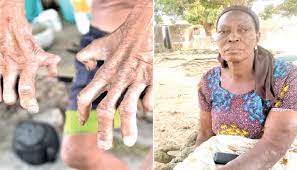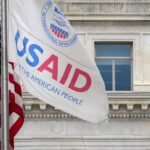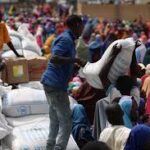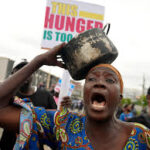Nigerian leprosy patients miss over a year of treatment.

Abuja, Nigeria — Nigeria’s battle against leprosy is facing a major setback as thousands of patients have reportedly missed over a year of treatment due to funding shortages, weak health systems, and the lingering impacts of global economic shocks. Health experts warn that this disruption could reverse progress made in controlling the disease and put vulnerable populations at greater risk.
Leprosy, also known as Hansen’s disease, is a chronic infectious illness caused by Mycobacterium leprae. While curable with multi-drug therapy (MDT), interruptions in treatment increase the risk of disability, stigma, and continued transmission in communities. Nigeria, which remains one of the countries still burdened by leprosy, has seen patients across several states left stranded without medication for months.
A Silent Crisis in Nigeria’s Health System
According to health officials and non-governmental organizations, supply chain disruptions and declining international support have left local clinics unable to provide continuous treatment. Many leprosy patients, particularly in rural and marginalized areas, have been forced to wait without medication, putting their health and mobility at risk.
“This is a silent crisis,” said Dr. Musa Ibrahim, a public health physician in Kano. “Leprosy may not dominate headlines like Lassa fever or malaria, but for those living with it, missing treatment for over a year can mean irreversible disability.”
The World Health Organization (WHO) recommends uninterrupted MDT for leprosy patients, typically lasting 6–12 months, depending on the type of infection. A year-long interruption not only halts recovery but also exposes patients to discrimination and worsens community transmission.
Leprosy in Nigeria: A Persistent Challenge
Despite efforts to eliminate the disease, Nigeria still reports thousands of new leprosy cases annually. States in the North-East and North-West, including Kano, Sokoto, Kebbi, and Borno, remain hotspots due to poor healthcare infrastructure and limited access to medical services.
Leprosy control programs in Nigeria have historically relied on donor support, including the free provision of MDT by international organizations. However, shrinking global funding and competing health priorities have left gaps in Nigeria’s response.
Data from the Federal Ministry of Health suggests that Nigeria records over 2,000 new cases of leprosy every year, with children accounting for a significant proportion—an indication of ongoing transmission. Experts say this number could rise if the treatment gap persists.
Impact on Patients and Families
For many patients, leprosy is more than a medical condition—it is a source of deep stigma. Those who develop visible deformities often face rejection in their communities, job losses, and even family separation.
Fatima, a 38-year-old mother from Sokoto who was diagnosed with leprosy in 2022, said she has been unable to continue treatment for over 14 months. “The clinic told me there were no drugs. My hands are getting weaker, and I am afraid my children will suffer because people in my village already avoid me,” she shared.
Stories like Fatima’s highlight the urgent human cost of treatment disruptions. Without timely medication, patients risk permanent nerve damage, ulcers, and disabilities that can last a lifetime.
Experts Call for Immediate Action
Health experts are calling on the Nigerian government to prioritize leprosy in its public health agenda and secure sustainable funding for treatment.
“The fact that Nigerian leprosy patients have missed treatment for over a year is unacceptable,” said Dr. Chika Okeke, an infectious disease specialist in Abuja. “We need stronger partnerships with international organizations, consistent supply chains, and better integration of leprosy care into primary healthcare.”
Civil society groups have also urged increased awareness campaigns to reduce stigma and encourage patients to seek treatment early.
Global and National Commitments Needed
While Nigeria has made progress in tackling diseases such as polio and HIV, leprosy continues to linger in neglected corners of the health system. Experts argue that the country’s success in combating leprosy will depend on a mix of political will, funding, and community engagement.
The World Health Organization has emphasized the importance of a “zero leprosy” goal by 2030, focusing on ending transmission and ensuring no more children are affected. Nigeria, as one of the priority countries, must align its national strategy with this global roadmap.
Conclusion: A Race Against Time
Nigeria’s leprosy crisis serves as a reminder that neglected tropical diseases still require urgent attention. For the thousands of patients who have missed treatment, every day without medication means worsening health, deeper stigma, and a risk of infecting others.
To break this cycle, health authorities must restore treatment continuity, invest in local healthcare capacity, and ensure that no patient is left behind. Without immediate action, Nigeria risks undoing decades of progress in the fight against leprosy.



